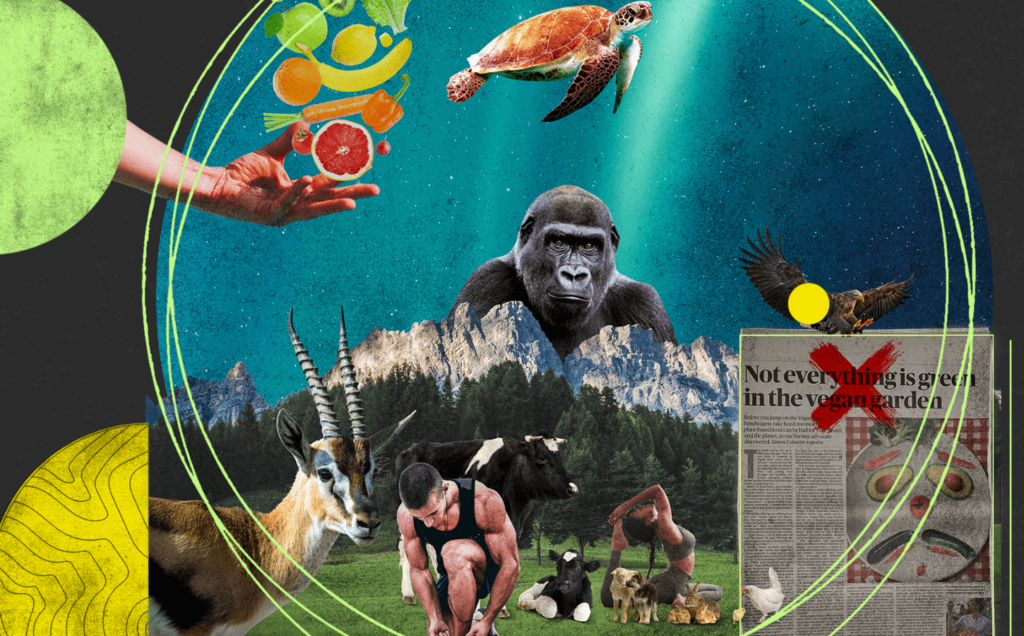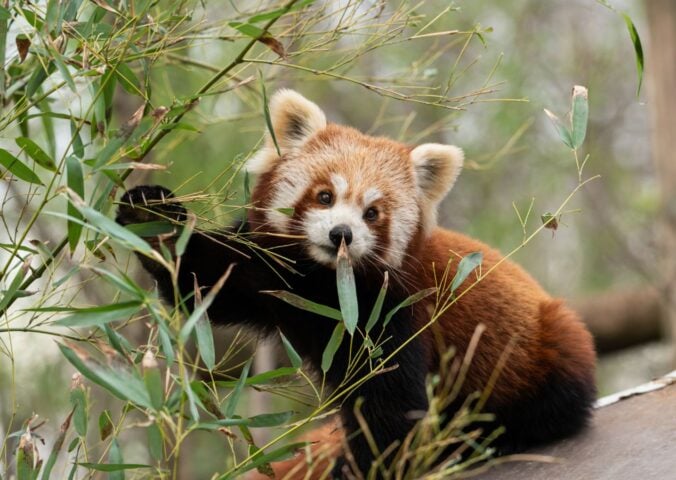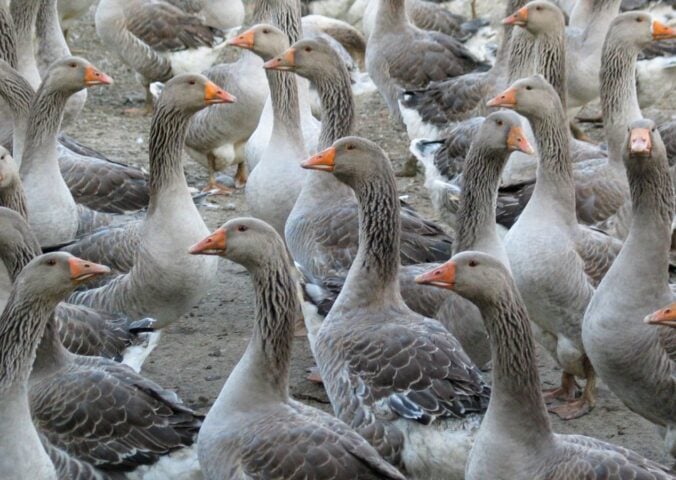A few decades ago, the majority of people wouldn’t have known the meaning of the word “vegan.” As we arrived in the 20th century, it was commonly used to refer to a fringe movement of people on extreme diets. Now, veganism is becoming more mainstream every day. But what is veganism? And how is it different to a plant-based diet? Here’s everything you need to know about the movement.
The word vegan refers to people who avoid contributing to non-human animal exploitation. This means that they won’t eat, wear, or in any way use products made with or from animals.
There are limits to this, however. Due to the world we live in, it wouldn’t be viable for most vegans to live in a way that causes no indirect harm to animals at all. Vital medicines are tested on animals, and the production of many plant-based foods harms bees, bugs, and other wildlife. In some places, like in the UK, animal fat is used to make currency.
Being vegan, therefore, means doing as much as possible to avoid harm to animals. Vegans won’t eat meat, dairy, eggs, or honey, or wear materials like leather, wool, silk, and fur. Vegans should also – where possible – avoid products containing animal-derived ingredients, and those tested on animals. Additionally, vegans avoid activities that rely on harming or exploiting animals, such as elephant “rides” or horse racing.
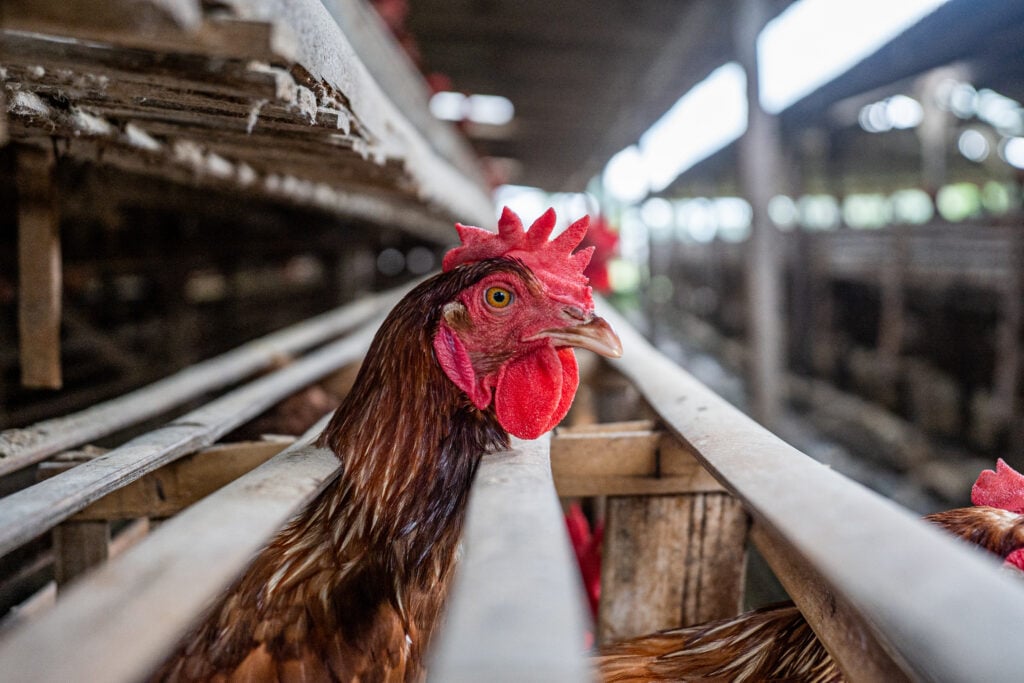
The origins of veganism
The word “vegan” was coined in the UK in the 20th century, but its ideals date back thousands of years.
In 1944, a vegetarian named Donald Watson, who also chose not to eat dairy, decided that there should be a word to depict people like himself. He landed on “vegan,” as it contained the first three and last two letters of “vegetarian.” In 1949, Leslie J Cross (the former vice president of the Vegan Society), defined veganism as “the principle of the emancipation of animals from exploitation by man.”
But Watson and Cross were by no means the first to take a stance against animal exploitation. Many people mistakenly believe that veganism is a predominantly white and western way of living. But its origins date back thousands of years to a number of different cultures across the world.
Siddhārtha Gautama (also known as the Buddha) endorsed vegetarianism to his followers when he lived in the 5th or 6th century BC. In the same period of time, the religions of Hinduism and Jainism, both of which are still prominent today, were advocating for meat-free diets.
In 500 BC, Greek philosopher and mathematician Pythagoras of Samo endorsed kindness toward animals, and chose not to eat them. He also taught this ethical stance to his followers.
Why do people go vegan?
These days, there are vegans all over the world. Veganism is growing in popularity in many countries, across a variety of cultures and religions, and among a number of different ethnicities.

There are many reasons why people go vegan. But the central component of the original vegan movement is a commitment to ending exploitation of animals for human use.
As mentioned previously, being vegan requires avoiding animal products in all aspects of your life. So a belief in animal rights is, for most people, a starting point.
Benefits of veganism: animal rights
It is estimated that around 92 billion land animals are killed for food each year. On top of that, approximately two trillion fish are killed annually.
Animals killed for food suffer immensely. Around 70 percent of farmed animals in the world are factory farmed. This number is 85 percent in the UK, and 99 percent in the USA. Factory farmed animals are crammed together in sheds, kept in cages too small for them to turn around in, and will often never get to see the outside.
While there is no denying that factory farming is a particularly brutal form of animal agriculture, vegan disapproval of the industry is by no means limited to it.
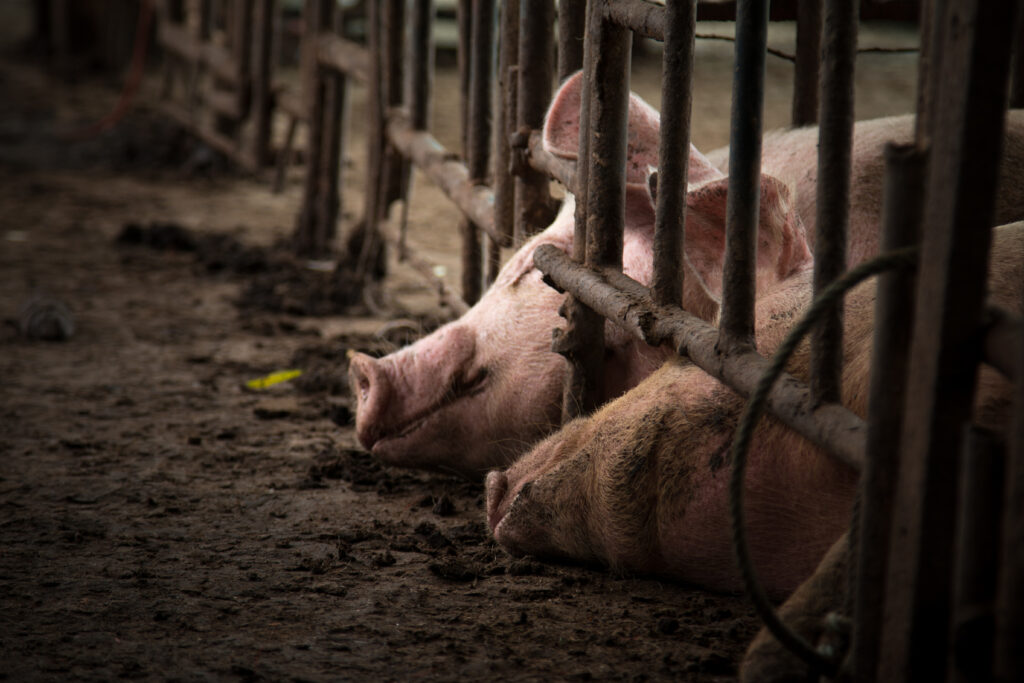
Vegans believe that it is fundamentally wrong to raise and slaughter an animal for food in any context. Exceptions to this rule are people living in communities that rely on animal meat to survive, but this does not apply to the majority of humans in the world.
All animals, whatever farm they are raised in, did not choose to be there. They are prevented from living a life that’s natural to them, and they are prematurely slaughtered against their will. Vegans believe all animals have a right to live life on their own terms, so will not participate in this exploitation.
Benefits of veganism: the environment
A growing number of people are adopting a plant-based diet on environmental grounds.
Animal agriculture is one of the most environmentally destructive industries, being responsible for at least 14.5 percent of greenhouse gas emissions. This figure has been disputed, however, with many estimating it’s much higher.
Livestock farming is also a leading cause of deforestation. This is due to the fact that vast amounts of land are required to keep animals and grow their feed. It is thought that animal agriculture is responsible for around 91 percent of Amazon destruction.
Animal farming has also been identified as the primary cause of biodiversity loss. This is one of the most significant environmental problems we face. A UN report from 2021 found that we need to move toward “plant-heavy” dietary patterns to address it.

Livestock farming is also a leading cause of resource depletion, as copious amounts of grains and fresh water are required to sustain the animals. It is thought that farmed animals use up around a third of the world’s water. And while many people link vegan soy consumption to Amazon deforestation, it is actually mostly eaten by farmed animals. Around 77 percent of the world’s soy is fed to livestock. Meanwhile, only seven percent is made into tofu, soy milk, and other human food products.
Benefits of veganism: health
Many people choose to adopt a plant-based diet for health reasons. Animal product consumption has been linked to an increased risk of a number of diseases. In contrast, fruits, vegetables, and other plant-based foods are known to improve health outcomes.
Processed pig meat, including ham, bacon, and salami, has been classed as a group 1 carcinogen by the World Health Organization. This is the same classification as tobacco smoking and asbestos.
Red meat has also been linked to an increased risk of heart disease and type 2 diabetes, while dairy has been linked to illnesses like prostate cancer.
Adopting a plant-based diet can also help with weight management and lowering cholesterol. Further, many people claim it helps them manage chronic illness, as well as improve energy levels.
Dr Shireen Kassam, a consultant hematologist and honorary senior lecturer at London’s King’s College Hospital, maintains that the National Health Service (NHS) could save over £30 billion a year if the country went vegan.
Veganism and B12
Despite the many health benefits of veganism, some argue that the diet is unnatural as there aren’t many plant-based sources of B12.
In the modern world, the essential vitamin is mostly found in animal products like meat and dairy. But this doesn’t mean that our consumption of these is natural.
B12 is a vitamin produced by bacteria. It is created by microbes in the guts of animals and then released via their excretion. B12 is also naturally found in soil, meaning wild animals ingest it while eating plants.
Early humans likely also obtained their B12 directly from the soil while eating foraged foods. But this is no longer applicable in the modern world.
Due to the rise of intensive farming and soil degradation, the fruits and vegetables available in supermarkets do not contain B12 like produce naturally used to (especially unwashed produce). Similarly, most farmed animals don’t get B12 from the soil. They are therefore supplemented, often with injections or fortified feed. This means that people who criticize veganism for its “unnatural” B12 sources are also often getting theirs indirectly via the same means.
B12 is essential for optimal human health. It is vital that vegans get their recommended daily dose of it, either via supplementation or fortified food.
What’s the difference between vegan and plant-based?
Some people who adopt vegan diets for environmental or health reasons may be referred to as “plant-based.” This is because they don’t necessarily incorporate veganism into other aspects of their lives.
People who are “plant-based” are generally understood to avoid – or mostly avoid – animal products in their diets. They sometimes will not, however, abstain from wearing animal-based clothing or using products tested on animals. They may also support animals being used for human entertainment, such as in circuses or dolphin shows, which vegans boycott.
What’s the difference between vegan and vegetarian?
While the ideas of veganism did stem from those of vegetarianism, these days they are very different lifestyles.
Broadly speaking, vegetarianism refers to people who don’t eat the flesh of any dead animal, including fish and insects. They will also not eat gelatin, animal rennet, or stock made from meat. In summary, they don’t eat products of animal slaughter.
They will often, however, eat eggs, dairy, honey, and some other foods made using animals. These products are acceptable for vegetarians as they aren’t made directly from a dead animal.
Not all vegetarians are the same, and there will be some who choose to not eat certain animal products.
Vegetarians usually don’t wear fur, and may also opt not to wear leather as well. Materials like wool and cashmere, however, will generally be accepted within the vegetarian lifestyle.
Why don’t vegans eat milk and eggs?
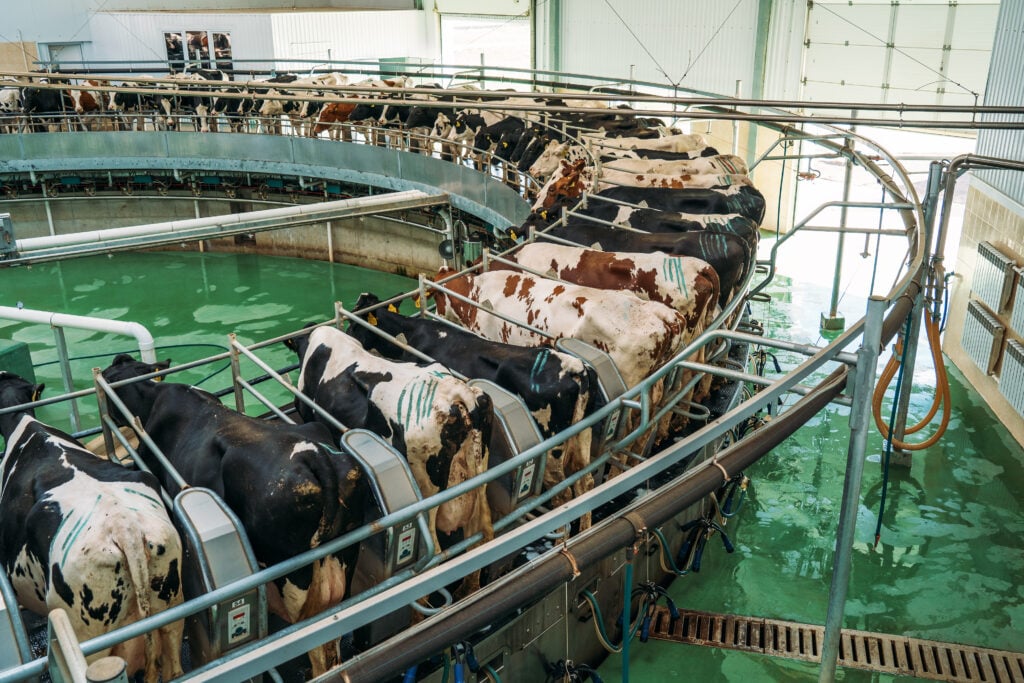
The decision not to consume animal milk (including cheese) and eggs is one of the most well-known distinguishers between vegans and vegetarians. The reason why vegans don’t eat these products is because they are made from animal exploitation.
Dairy cows are farmed against their will, and it is arguable that they suffer among the worst of any animal used for food. They are forcibly impregnated each year via artificial insemination. Each time they give birth, they have their calves taken from them so that humans can drink their milk. Mother cows have been known to cry out and bellow in apparent distress for days after they’re gone.
Hens used in the egg industry have been selectively bred to produce around 300 eggs a year. Naturally, it is thought they would lay just 12. Producing these eggs takes a huge toll on their bodies, and they will often suffer from osteoporosis and calcium deficiency. Many are kept in cages for their whole lives, but even those in “free-range” systems often live in cramped barns with thousands of other birds.
Further, chickens and cows used in the egg and dairy industries will end up in the slaughterhouse.
Limits of veganism
As outlined above, there are limits to how much a vegan can minimize their harm on animals.
We live in a non-vegan world. And as a result, a huge number of foods and products involve direct or indirect animal exploitation.
Some people mistakenly claim that foods like avocados and almonds aren’t vegan due to the fact they rely on migratory beekeeping to be farmed.
Similarly, some argue that veganism is pointless due to the fact that many animals are killed in the gathering of crops.
It is possible to find indirect animal exploitation and death in most plant-based farming, and it would be unfeasible for vegans to avoid it all.
Vegans, therefore, are those who seek to do as much as possible to avoid animal harm in their lives.
What is a flexitarian?
Flexitarianism is a relatively new term that broadly refers to someone who follows a mostly, but not exclusively, meat-free diet.
Flexitarianism is hugely popular across the world; approximately one in four global consumers identify as flexitarian.
Vegan fashion
Many materials that you’ll find on the high street and in designer brands are not suitable for vegans. The obvious ones are fur, leather, and suede, which most people know are derived from animals.
Less obvious materials that vegans don’t wear include wool, cashmere, mohair, silk, and shearling.
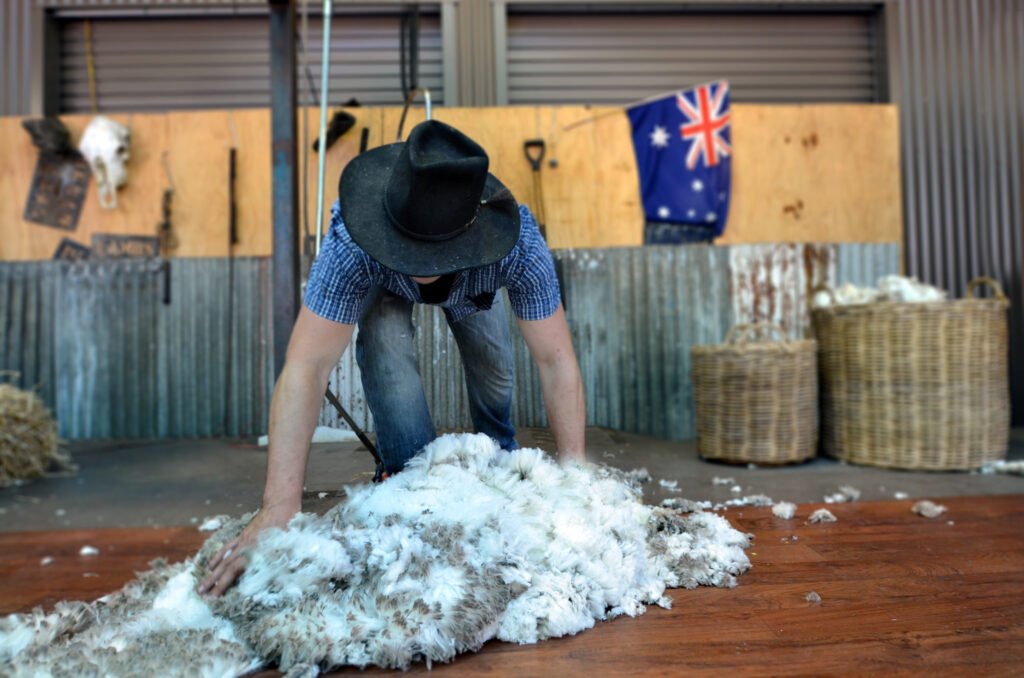
All of these materials involve animal exploitation. Animals are farmed to produce them, and they are frequently subjected to pain, mutilations, and death.
In the wool industry, for example, lambs often have their tails cut off, and will sometimes be castrated without pain relief. Farmers have been known to shear sheep aggressively, as many are paid not by the hour, but by the volume of wool they obtain. This means many sheep suffer from injuries and wounds during the shearing process.
In the silk industry, so-called “silkworms” are farmed and often boiled alive so humans can collect their silk.
Vegan beauty
Vegan beauty is often less straightforward than fashion. This is because it isn’t always easy to find out if a particular brand or product is vegan-friendly.
Many skincare, make-up, and hair care products contain animal ingredients, like beeswax. Even those that don’t may still be tested on animals.
Vegan beauty refers to products that don’t contain animal-derived ingredients, and are also made using cruelty-free processes.
Notable and celebrity vegans
The vegan movement has grown significantly in recent years, and many celebrities are now vocal advocates of the vegan movement.
Notable vegan celebrities include Joaquin Phoenix, Sadie Sink, Billie Eilish, Natalie Portman, Ricky Gervais, and Alicia Silverstone.
There are also a number of significant voices in the animal rights movement. These include Earthling Ed, Genesis Butler, and Joey Carbstrong.
The future of veganism
Evidence shows our current agricultural system is unsustainable. And, that a global shift to plant-based eating is imperative to slow climate breakdown. A study from the University of Oxford in 2018, for example, found that western countries must reduce beef consumption by 90 percent to avoid environmental collapse.
While the future must be plant-based, that doesn’t mean every person will choose to become vegan.
Plant Based News founder Klaus Mitchell previously heralded “collective veganism,” which he defined as a “practical reality in a collective sense.”
“Of course, agricultural reforms in developing countries will be slow,” he said. “And in our lifetime there will still be factions of hunters, fishers, and communities that farm animals. Perhaps out of necessity. But remember the definition of veganism: the minimization to the highest extent practicable of all forms of animal suffering. If a subset of the population needs to farm animals, this is not necessarily at odds with the definition of veganism.“
